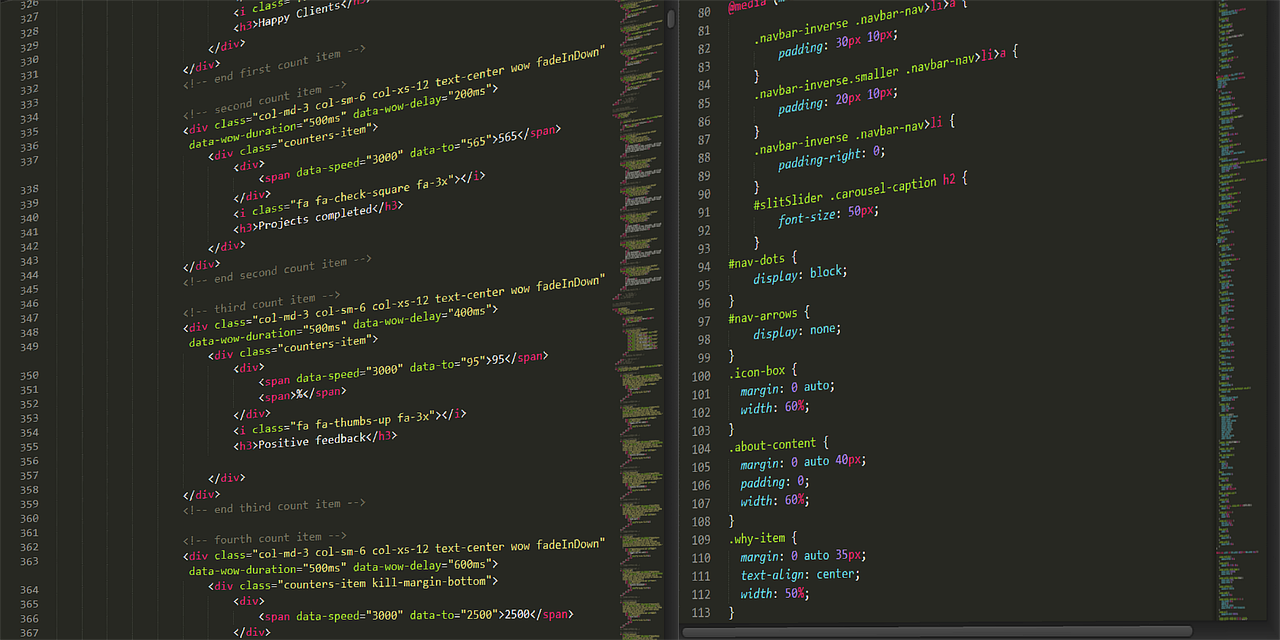Website Designer Near Me: Finding Local Talent for Your Project
Website Designer Near Me: Finding Local Talent for Your Project
Your online presence is no longer optional; it’s your digital storefront, your 24/7 salesperson, and often, the first impression you make on potential customers. Hiring the right website designer can make or break your business’s success in today’s competitive landscape.
So, how do you find the ideal website designer near you in a world saturated with online options? Let’s dive in.
Why Local Website Design Matters in 2025
Why not just hire the cheapest freelancer you find online? While cost is a factor, prioritizing a local website designer offers numerous advantages.
- In-person Collaboration: Easier meetings, brainstorming sessions, and project check-ins leading to better communication and a smoother workflow.
- Understanding Your Local Market: A local designer is more likely to be familiar with the nuances of your target audience and regional trends.
- Building a Long-Term Relationship: Fosters trust and open communication, beneficial for future updates, maintenance, and potential rebranding.
- Supporting the Local Economy: Investing in your community helps it thrive.
Beyond these, local designers are increasingly focused on hyperlocal SEO strategies. This means they understand how to optimize your website to rank higher in local search results, driving more foot traffic and online inquiries. Think beyond just keywords; consider local schema markup, Google Business Profile optimization, and location-specific content.
Identifying Your Website Needs: Before You Start Searching
Before you even type “website designer near me” into Google, take a step back. What do you really need from your website?
- Define Your Goals: What do you want your website to achieve? Generate leads? Sell products? Build brand awareness?
- Outline Your Budget: Website design costs vary widely. Establishing a budget upfront helps narrow your search. Include ongoing maintenance costs.
- Assess Your Technical Requirements: Do you need e-commerce functionality? Membership capabilities? Complex integrations?
- Consider Your Brand Identity: Your website should reflect your brand’s personality, values, and aesthetic. Have a clear style guide or branding assets ready.
- Think About Content: Will the designer create the content, or will you provide it? Content strategy is crucial for website success.
Where to Find Website Designers Near You: Beyond Google
While Google is a great starting point, consider these additional avenues:
- Referrals: Ask other local businesses for recommendations. Word-of-mouth is powerful.
- Online Directories: Platforms like Clutch, DesignRush, and UpCity list agencies and freelancers, often with client reviews.
- Social Media: LinkedIn, Facebook groups, and even Instagram can be valuable resources. Search for local business groups and ask for recommendations.
- Local Business Events: Networking events, conferences, and workshops can connect you with potential design partners.
- Universities and Colleges: Look into local educational institutions offering design programs. You might find talented students or recent graduates.
Pro Tip: When using online directories, pay close attention to verified reviews and portfolio quality. Don’t rely solely on star ratings.
Evaluating Potential Website Designers: What to Look For
Once you’ve compiled a list of potential candidates, it’s time to evaluate their skills and experience.
Here are key factors to consider:
- Portfolio: Does their work align with your aesthetic preferences and industry standards? Look for variety and evidence of successful projects.
- Technical Expertise: Do they have experience with the platforms and technologies you need (e.g., WordPress, Shopify, custom coding)? In 2025, experience with AI-powered website builders is also a significant asset.
- Communication Skills: Are they responsive, attentive, and able to explain complex concepts clearly?
- Process and Methodology: Do they have a well-defined project management process? Do they involve you in the design process?
- Pricing Transparency: Do they provide clear and detailed quotes? Are there any hidden fees?
- References: Don’t hesitate to ask for and contact past clients.
- SEO Knowledge: Can they build a website that is not only visually appealing but also optimized for search engines?
- Mobile-First Design: In 2025, a mobile-first approach is non-negotiable. Ensure the designer prioritizes mobile responsiveness.
- Accessibility Compliance: Websites must be accessible to users with disabilities. Look for designers familiar with WCAG guidelines.
Red Flags to Watch Out For
Be wary of designers who:
- Make unrealistic promises (e.g., “guaranteed #1 ranking on Google”).
- Lack a professional portfolio or website.
- Are unwilling to provide references.
- Demand full payment upfront.
- Are unresponsive or difficult to communicate with.
- Don’t have a clear understanding of your business goals.
- Use outdated design trends.
Budgeting for Your Website Design Project: Understanding the Costs
Website design costs can vary widely depending on the scope of the project, the designer’s experience, and the technologies used.
Here’s a general overview:
- Basic Website (5-10 pages): $3,000 – $10,000
- E-commerce Website: $5,000 – $20,000+
- Custom Website Development: $10,000+ (can easily exceed $50,000)
Consider these additional costs:
- Domain Name Registration: $10 – $20 per year
- Web Hosting: $5 – $100+ per month (depending on traffic and storage needs)
- Content Creation: $50 – $500+ per page
- SEO Services: $500 – $5,000+ per month
- Website Maintenance: $50 – $500+ per month
Tip: Ask for a detailed breakdown of costs and understand what’s included in the price. Don’t be afraid to negotiate.
The Importance of a Website Design Contract
Once you’ve chosen a designer, always have a written contract. This document should clearly outline:
- Scope of Work: What services will be provided?
- Timeline: Key milestones and deadlines.
- Payment Schedule: When and how payments will be made.
- Ownership of Intellectual Property: Who owns the website design and code?
- Maintenance and Support: What ongoing support will be provided?
- Termination Clause: What happens if either party terminates the agreement?
- Confidentiality Agreement: Protects your sensitive business information.
Important: Have your lawyer review the contract before you sign it.
Staying Ahead of the Curve: Website Design Trends in 2025
The digital landscape is constantly evolving. Staying abreast of the latest website design trends is crucial. In 2025, look for these trends:
- AI-Powered Design Tools: AI is automating many aspects of website design, making the process faster and more efficient.
- Neobrutalism: Raw, minimalist designs with bold typography and unconventional layouts.
- Immersive Experiences: Interactive elements, 3D graphics, and virtual reality integration.
- Sustainable Design: Eco-friendly design practices that minimize environmental impact.
- Personalized Experiences: Websites that tailor content and design based on user behavior.
- Voice Search Optimization: Optimizing websites for voice search queries.
- Augmented Reality (AR) Integration: AR features that enhance the user experience.
Website Design FAQs
-
How long does it take to design a website? This depends on the scope of the project. A simple website may take a few weeks, while a complex e-commerce site can take several months.
-
What is responsive web design? Responsive web design ensures that your website looks and functions flawlessly on all devices (desktops, laptops, tablets, and smartphones).
-
What is SEO? Search Engine Optimization is the process of optimizing your website to rank higher in search engine results pages (SERPs).
-
What is a CMS? A Content Management System (CMS) allows you to easily manage and update your website’s content without technical knowledge. WordPress is the most popular CMS.
- How much should I budget for website maintenance? Website maintenance costs vary depending on the complexity of your site and the level of support you need. Expect to pay anywhere from $50 to $500+ per month.
How to Ensure a Successful Website Design Project: A Checklist
To recap, here’s a quick checklist for ensuring a successful website design project:
- Define your goals and budget.
- Find local designers using multiple channels.
- Evaluate portfolios and technical expertise.
- Check references and read reviews.
- Get a detailed contract.
- Stay involved in the design process.
- Prioritize mobile-first design and SEO.
- Ensure accessibility compliance.
- Plan for ongoing maintenance and updates.
- Stay informed about the latest design trends.
Finding the right website designer near you is an investment in your business’s future. By following these tips, you can ensure that your website becomes a powerful tool for achieving your goals.


